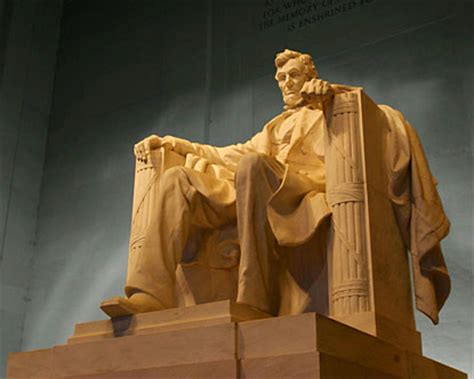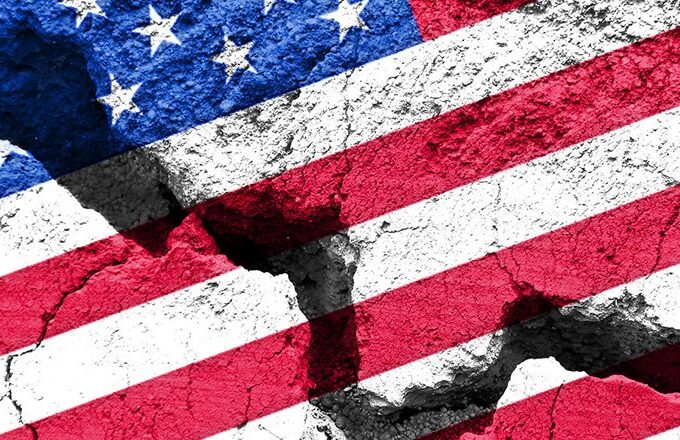It’s time to reflect on Lincoln’s “house divided” speech.
Once again, political division is roiling the United States. In my lifetime, 2020 has been one of the most difficult and tragic years for our democratic-republic. Case in point: almost two weeks after the election the outcome is still being debated.
On the streets we see (again) the protests and riots, symptoms of a deeper divide. Behind the riots are a variety of policy disputes which in turn are principles that drive the arguments over policy.
One such divide of principle surfacing after the election has to do with the counting of ballots. “Every vote counted” is the demand of one side, the other side cries “every legal vote counted.” These two very different principles produce two very different electoral policies, a difference reflected both in the tension on the ground and in the actual counting process of the ballots. Should we count all legal ballots or all ballots? One of these principles is rooted in the United States Constitution, the other is not. Whichever of these slogans prevails will determine not only the outcome of the election, but also whether we will be a nation based on the rule of law, or on the rule of men.
Two sides, two worldviews
Behind these two principles are two very different paradigms or worldviews. One is rooted in the moral universe where objective truth exists and is foundational to the rule of law. The other is an amoral universe, were truth is subjective—my truth vs. your truth—that leads to the rule of man.
The tension and heat leading up to the election and in its aftermath is felt on the streets, but is not coming from the streets. It is sourced in radically different political, social and economic policies which in turn are derived from different principles emanating from two radically different worldviews.
As a nation, we are in a very difficult place. How will we extricate ourselves from it? Speaking sweet platitudes of “national unity” and “can’t we all just get along” will hardly suffice to redeem this situation. Let us turn to counsel from America’s most beloved president, Abraham Lincoln.
As a Republican senatorial candidate, Lincoln gave his famous “house divided” speech on June 16, 1858. His address was based on Jesus’ famous words, “If a house is divided against itself, that house cannot stand,” (Mark 3:25).
What did Lincoln say?
We need to think again about the words of Jesus and reflect on Lincoln’s insights, spoken in the time preceding the US Civil War. He began by observing that if we want to know what to do and how to do it we need to know where we are and which way we are going.
If we could first know where we are, and whither we are tending, we could then better judge what to do, and how to do it.
We are now far into the fifth year since a policy was initiated, with the avowed object and confident promise of putting an end to slavery agitation.
Under the operation of that policy, that agitation has not only not ceased but has constantly augmented.
In my opinion, it will not cease until a crisis shall have been reached and passed.
“A house divided against itself cannot stand.”
I believe this government cannot endure permanently half slave and half free.
I do not expect the Union to be dissolved — I do not expect the house to fall — but I do expect it will cease to be divided.
It will become all one thing or all the other.
Either the opponents of slavery will arrest the further spread of it, and place it where the public mind shall rest in the belief that it is in the course of ultimate extinction; or its advocates will push it forward, till it shall become alike lawful in all the States, old as well as new—North as well as South.
No matter the outcome of the 2020 election, we need to hear Lincoln’s wisdom. (Go here to read the entire address.)
Freedom or slavery, which will it be?
 Today’s conflict will lead to one of two ends: a US that is free or slave, a self-governing people living in freedom or a lawless people controlled by despots, a nation that celebrates liberty or voluntarily surrenders to tyranny.
Today’s conflict will lead to one of two ends: a US that is free or slave, a self-governing people living in freedom or a lawless people controlled by despots, a nation that celebrates liberty or voluntarily surrenders to tyranny.
Ultimately it will be determined by how seriously Christians take 2 Chronicles 7:14: “If my people who are called by my name humble themselves, and pray and seek my face and turn from their wicked ways, then I will hear from heaven and will forgive their sin and heal their land.”
Will we repent, pray for revival and work for reformation, returning our lives and nation to In God We Trust?
- Darrow Miller






